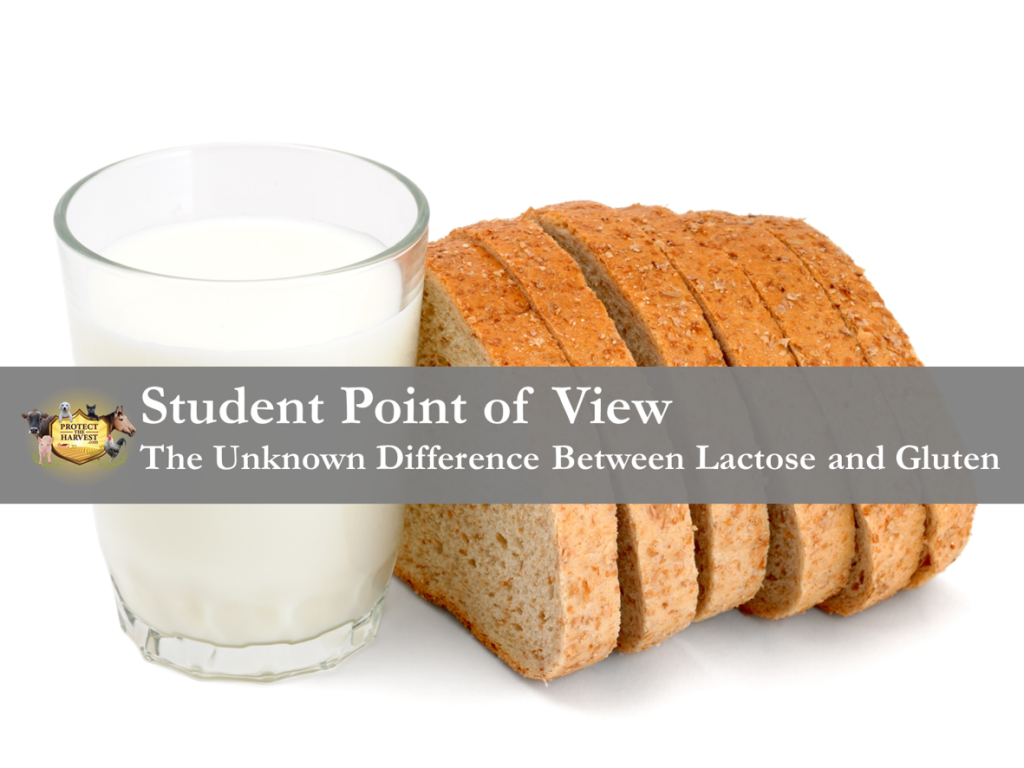Student POV – The Unknown Difference Between Lactose and Gluten
This piece is written by a sophomore at Oklahoma State University studying Agricultural Communications and Agribusiness.
Picture this: you are at a restaurant trying to order a rice bowl for lunch and you want to know the ingredients. More specifically, you are trying to make certain the content of your rice bowl does not contain gluten. When asked, your well-meaning server happily tells you the dish contains butter, so “yes, it does contain gluten.”
This is a situation I personally experienced while attending school in my college town of Stillwater, Oklahoma.
As a college student with celiac disease – an autoimmune disease that prevents me from ingesting gluten – I have repeatedly witnessed the lack of awareness that college students have about the food they eat, how it’s produced, and where it comes from. This includes the story I shared above. The biggest issue that I have witnessed is the belief among restaurant staff and college students – often the same people – is that gluten and lactose are the same thing.
Gluten is a protein found in grains such as wheat, barley, and rye. So, it is safe to say butter, which is a dairy product made from churned cream, does not fall into the category of foods containing gluten. Butter does contain a small amount of lactose, which can cause food sensitivity in some people. Lactose is found in dairy products including milk, butter, cheese, and yogurt.
I strongly believe the difference between gluten and lactose should be
common knowledge by the time a person reaches college age. Yet, the lack of knowledge about food does not end with knowing the difference between gluten and lactose. It is important for all young people to learn about food production, food ingredients, and nutrition. It is the educational system’s responsibility to teach students what is in their food, how it affects their bodies, and where it comes from. This should be foundational learning for all young people. It should not be something people just learn along the way or are taught on an “as-needed” basis.
Understanding how the composition of food affects me and others with severe allergies is important, but the greatest risk is how certain ingredients in foods affect those who are uninformed. I have had to learn, on my own, which foods I can tolerate that are healthy and nutritious, and I would not have if not for my diagnosis. For that, I consider myself lucky, even if I can no longer enjoy bread with dinner. I truly feel bad for people who lack knowledge about the food they eat, yet voluntarily choose to place dietary restrictions on themselves because they simply do not know what they are restricting, or why.
If you are a parent reading this, please explain the difference between lactose and gluten to your children. If you are an educator, do the same because no false information or fad diet is worth missing out on the cake and ice cream of life. We all need to eat to live and thrive, so let’s do so from a position of being informed about the foods we consume.



